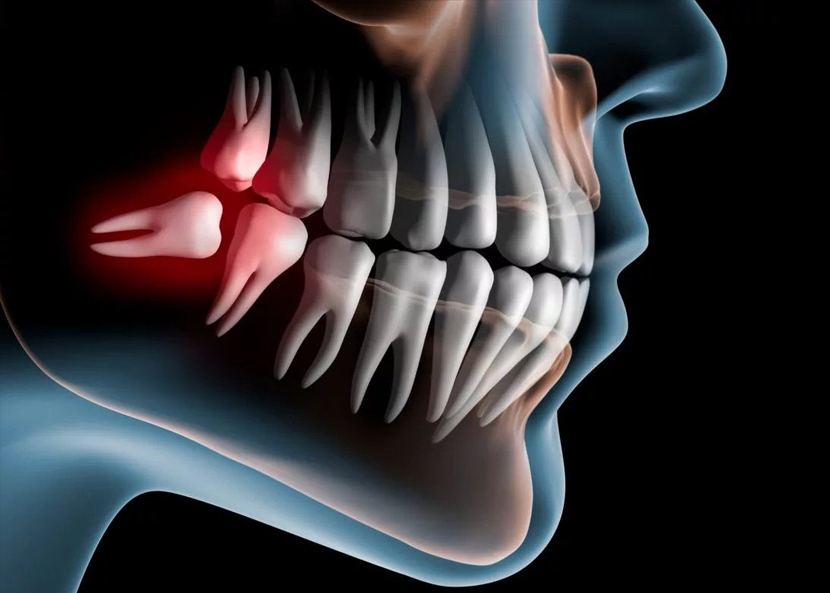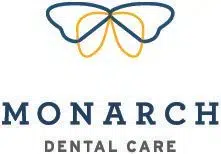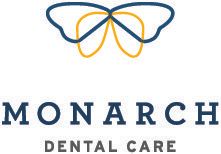
Painless Wisdom Tooth Extraction With Our Local Family Dentist
That familiar ache in the back of your mouth, or perhaps just a nagging worry from your dentist, often signals the arrival of wisdom teeth. These third molars, or third and final set of molars, typically emerge in the late teens or early 20s and can bring a host of questions and concerns. At Monarch Dental Care, home of the best dentist in Prairie Village, and our neighbors in Overland Park, Leawood, and Mission, we're here to provide clear answers and gentle care.
If you're wondering about your wisdom teeth, or experiencing discomfort, don't wait. We're ready to help you navigate this common dental milestone with comfort and confidence. Call us today at (913) 398-5323 to schedule your consultation.
Why Choose Monarch Dental Care For Gentle Dentistry Near You?
Under the compassionate guidance of Dr. Clark, our dental office in Prairie Village focuses on creating an environment where you feel heard, respected, and completely at ease. From the moment you step into our office, you'll notice the difference our patient-centered approach makes. We take the time to explain every procedure, answer all your questions, and work with you to develop treatment plans that align with your needs and preferences.
Our team is dedicated to employing techniques and technologies that minimize discomfort, making every visit as pleasant as possible when wisdom teeth erupt. Ready to experience gentle dentistry with us? Call Monarch Dental Care today at (913) 398-5323 to schedule your visit!
What Are Wisdom Teeth?
Wisdom teeth are a natural part of human dentition, but their late arrival in jaws that may lack sufficient space often leads to complications. When these molars attempt to erupt in an already crowded mouth, they can become "impacted," meaning they are trapped beneath the gum line or bone, unable to emerge fully or in proper alignment. Impacted wisdom teeth are commonly extracted, which involves removing wisdom teeth, to treat or prevent problems. This impaction can lead to several oral health issues, making their removal a common and often necessary dental procedure.
Signs You May Need Wisdom Teeth Removed
Here are some common reasons why Dr. Clark might recommend wisdom tooth removal:
- Impaction and Pain: When a wisdom tooth is impacted, it can push against adjacent teeth, causing significant pain, pressure, and discomfort.
- Crowding and Misalignment: Even if they erupt, wisdom teeth can push other teeth out of alignment, leading to crowding. This can undo previous orthodontic work or create new alignment issues, affecting your bite and smile aesthetics.
- Cysts and Tumors: In rare cases, an impacted wisdom tooth can lead to the formation of cysts or even benign tumors around the tooth.
- Damage to Neighboring Teeth: An impacted wisdom tooth can exert pressure on the adjacent molar, leading to root resorption or decay that is difficult to treat due to the awkward angle.
- Increased Risk of Decay: Partially erupted wisdom teeth are notoriously difficult to clean effectively. Food particles and bacteria can easily become trapped around them, leading to decay not only on the wisdom tooth itself but also on the adjacent molar.
Dr. Clark emphasizes a proactive approach, identifying potential problems early to mitigate future complications. Wisdom teeth extraction is often performed to prevent future dental problems, such as crowding, tooth decay, or infection. Call (913) 398-5323 for a consultation if you experience any of these symptoms.
The Wisdom Tooth Removal Process in Prairie Village
Initial Consultation and Examination
Your journey begins with a comprehensive examination. Dr. Clark will review your medical history, perform a thorough oral examination, and take digital X-rays or 3D scans. These images provide a detailed view of your wisdom teeth's position, root structure, and proximity to nerves and sinuses. The removal of wisdom teeth is typically done as an outpatient procedure. This initial assessment helps Dr. Clark determine if removal is necessary and plan the safest, most effective approach.
Discussion of Anesthesia Options
Your comfort during the procedure is paramount. Dr. Clark will discuss various anesthesia options tailored to your needs and the complexity of the extraction. Anesthesia is often used during the removal of wisdom teeth to make the patient more comfortable. We aim to make your experience as relaxed and painless as possible, especially in the context of preventing gum disease .
The Extraction Procedure
The actual extraction process is precise and efficient. Depending on the tooth's position, Dr. Clark may need to make a small incision in the gum tissue or remove a tiny amount of bone covering the tooth. The tooth may be divided into smaller sections for easier removal. Once the tooth is extracted, the site is carefully cleaned, and stitches (often dissolvable) may be placed to aid healing.
Aftercare for Wisdom Tooth Surgery
The First 24 Hours: A Gentle Beginning
The initial 24 hours following your wisdom tooth removal are crucial for establishing a good healing environment.
- Bleeding Management: It's normal to experience some bleeding or oozing from the extraction sites. Keep gentle, consistent pressure on the gauze pads placed in your mouth for about 30-45 minutes after leaving our office.
- Pain Relief: You will likely experience some discomfort as the anesthesia wears off. Dr. Clark may prescribe pain medication, or recommend over-the-counter pain relievers like ibuprofen or acetaminophen. Take these as directed to manage your pain effectively. Do not wait for severe pain to set in before taking medication.
- Swelling Reduction: Swelling is a common response to oral surgery. Apply an ice pack to the outside of your face, over the surgical areas, for 20 minutes on and 20 minutes off during the first 24-48 hours.
- Dietary Choices: Stick to soft, cool foods during the first day. Think about options like yogurt, applesauce, pudding, smoothies (without a straw), and lukewarm soup.
- Avoid Straws and Smoking: This is critical! The sucking motion created by using a straw or smoking can dislodge the blood clot from the socket, leading to a painful condition called "dry socket." It is recommended to avoid using straws after wisdom teeth removal to prevent dry sockets.
Days 2-7: Steady Progress
As you move past the first 24 hours, you'll generally start to feel better, but continued care is essential. Recovery time after wisdom teeth removal takes one to two weeks on average.
- Oral Hygiene: Gentle oral hygiene is vital. You can begin very gently rinsing your mouth with warm salt water (1/2 teaspoon of salt in 8 ounces of warm water) several times a day, starting 24 hours after surgery.
- Diet Expansion: Gradually reintroduce more solid foods into your diet as your comfort allows. Continue to avoid anything hard, crunchy, or difficult to chew that could irritate the healing sites.
- Continue Swelling Management: While ice packs are most effective in the first 48 hours, some residual swelling may persist. Heat packs can be introduced after 48 hours if swelling remains, as this can help improve blood flow and resolution of swelling.
- Activity Levels: You can gradually resume normal, light activities, but continue to avoid anything strenuous.
- Medication Adherence: Continue taking any prescribed medications as directed by Dr. Clark. Finish the entire course of antibiotics if prescribed, even if you feel better, to prevent infection.
Beyond the First Week: Full Recovery
Full healing of the wisdom tooth extraction site can take several weeks, but the acute symptoms typically subside within seven to 10 days.
Costs
- Pocket Closure: The socket where the tooth was removed will gradually fill in with new bone and tissue. This process takes time, and you might notice a small indentation for a while.
- Oral Hygiene: You can gradually return to your regular brushing and flossing routine, being mindful of the healing areas.
- Follow-Up Appointment: Dr. Clark will likely schedule a follow-up appointment, usually a week or two after your surgery, to assess your healing progress and remove any non-dissolvable stitches if necessary.
Frequently Asked Questions
Get Back to Smiling Without Pain With Gentle Wisdom Removal
Don't let the uncertainty surrounding wisdom teeth linger. Take the first step towards a healthier, more comfortable smile. Connect with Monarch Dental Care today. Dr. Clark and our compassionate team are ready to answer your questions and guide you with exceptional care. We welcome patients from Overland Park, Leawood, and Mission.
Your well-being is our priority. Call our dentist in Prairie Village at (913) 398-5323 to schedule your consultation and discuss your wisdom tooth needs.

